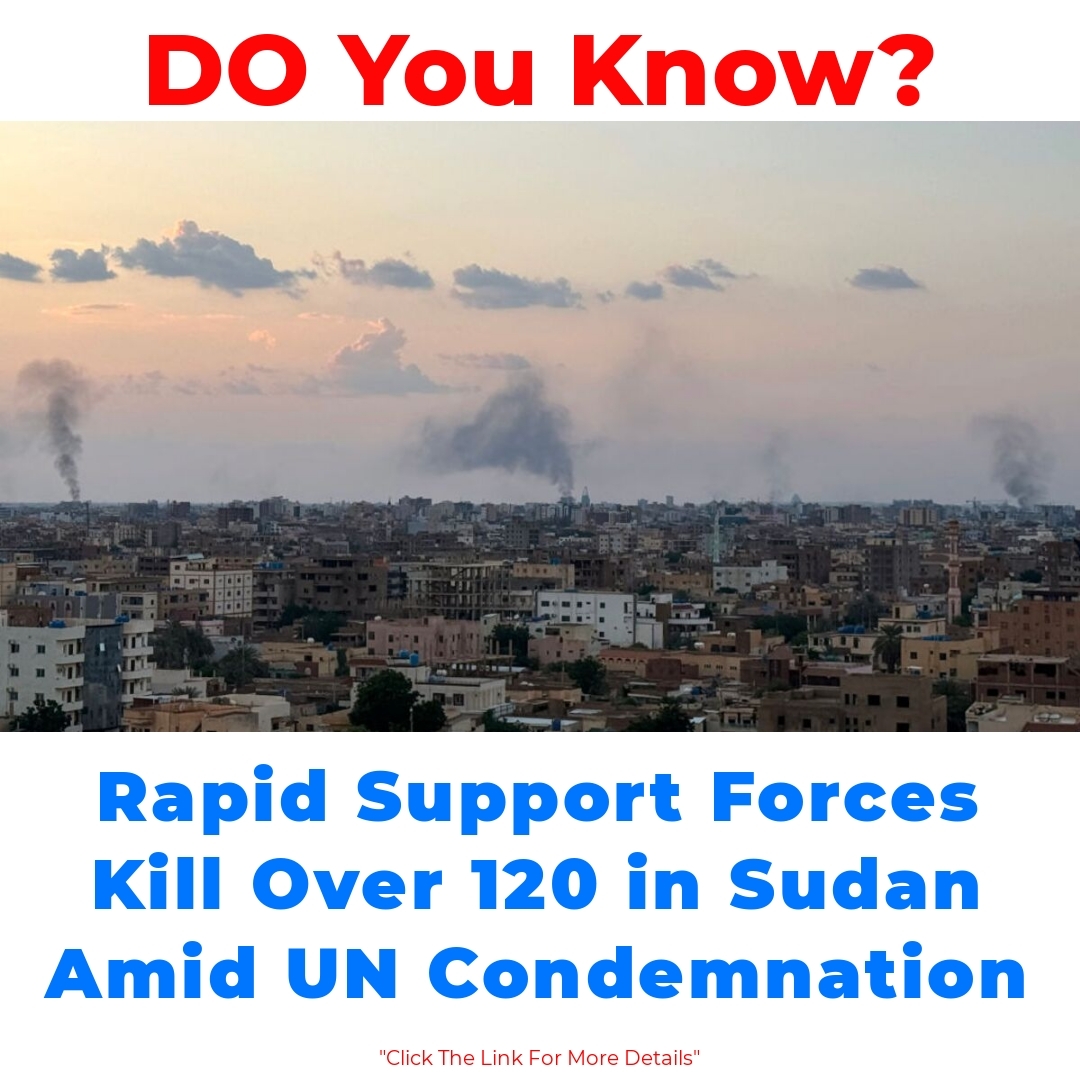The Sudan conflict has escalated into a significant humanitarian crisis impacting thousands of lives. Recent reports indicate that more than 120 civilians have lost their lives due to the actions of the Rapid Support Forces. The United Nations is actively involved in addressing this urgent situation, striving to mitigate the crisis and support those affected.

Overview of the Sudan Conflict
The Sudan conflict has deep roots, going back several decades. It all started with political power struggles, ethnic tensions, and a history of militia violence that left communities divided. The tensions escalated, and the situation deteriorated over the years, leading to large-scale armed conflict. The Darfur region, in particular, became infamous for violence and atrocities committed against civilians. Understanding this background is crucial for grasping the current humanitarian crisis in Sudan.
The Role of the Rapid Support Forces
When we talk about the Sudan conflict, we have to mention the Rapid Support Forces (RSF). This group was originally formed to fight against rebel movements, but their actions have increasingly come under scrutiny. Tragically, they have become notorious for their involvement in major human rights violations, particularly against civilian populations. The RSF has been linked to numerous atrocities, significantly contributing to the ongoing humanitarian crisis in Sudan. Their violent tactics have led to more civilian casualties, disrupting the lives of many innocent people who find themselves caught in the crossfire.
Civilians Caught in the Crossfire
Civilians are often the ones who pay the highest price in conflict situations. The current violence in Sudan has resulted in alarming numbers of civilian casualties. Recent reports show that many have lost their lives due to targeted attacks, particularly during shooting incidents involving the RSF. Not only do these attacks cause immediate harm, but they also create a lingering sense of fear and instability in the communities affected. It’s essential to highlight these incidents and recognize the broader implications for civilian safety in the region.
Human Rights Violations and Sexual Violence
In war zones like Sudan, human rights violations are a tragic reality. Reports of sexual violence against women and girls have surfaced, marking a dark chapter in the conflict’s history. The brutality faced by civilians, especially women, is extensive and horrifying. These incidents not only inflict immediate physical harm but also leave deep psychological scars on the survivors and their communities. The long-term effects can hinder the development and healing of these communities, perpetuating cycles of trauma and violence.
United Nations Response to the Conflict
The United Nations has been actively involved in addressing the violence and providing needed support for those affected by the Sudan conflict. They’ve implemented various initiatives aimed at stabilizing the region and protecting civilians. However, evaluating the effectiveness of the UN’s interventions is crucial. While they strive to provide humanitarian aid and support, challenges persist, including limited access to affected areas and ongoing violence that hampers efforts. Continuous monitoring and cooperation with local and international entities are essential to enhance these efforts.
Humanitarian Crisis and International Impact
The humanitarian crisis resulting from the Sudan conflict significantly affects not just the country but the broader North Africa region. The ongoing violence has led to large numbers of internally displaced persons seeking refuge in neighboring countries, putting additional strain on resources. The international community’s response has been varied, with some countries stepping up to provide humanitarian aid while others are more reticent. There’s a pressing need for coordinated international efforts to address the crisis effectively and explore potential solutions that support peace and stability in the region.
Conclusion
In summary, the Sudan conflict is a complex issue with devastating effects on civilian populations. From the actions of the Rapid Support Forces to the numerous human rights violations, the ongoing violence has created a dire humanitarian situation. It’s crucial for the international community to stay informed and engaged, supporting efforts to alleviate the humanitarian crisis in conflict zones like Sudan. More awareness and action are needed to help those affected and to combat violence against civilians. Together, with continued monitoring and collaboration, we can strive for a safer, more peaceful Sudan.
References
For further reading and credible sources regarding the Sudan conflict and the situation on the ground, consider checking reports from:
– United Nations Human Rights Council
– Amnesty International
– Human Rights Watch
– International Crisis Group
These organizations provide detailed insights and statistics on civilian safety and human rights violations in Sudan, enriching our understanding of the ongoing situation.
Frequently Asked Questions
What are the main causes of the Sudan conflict?
The Sudan conflict has deep roots in:
- Political power struggles
- Ethnic tensions
- A history of militia violence
These factors have led to large-scale armed conflict, particularly in the Darfur region.
Who are the Rapid Support Forces (RSF)?
The Rapid Support Forces (RSF) were formed to combat rebel movements but have become known for human rights violations against civilians, contributing to the ongoing humanitarian crisis.
How are civilians affected by the conflict?
Civilians often suffer the most in conflict situations, facing high casualties due to:
- Targeted attacks
- Shooting incidents involving RSF
These attacks create fear and instability within communities.
What are the human rights violations reported in Sudan?
The conflict has seen numerous reports of human rights violations, especially:
- Sexual violence against women and girls
- Brutality and torture against civilians
These incidents have lasting psychological effects on survivors and their communities.
What is the United Nations doing about the conflict?
The United Nations has taken steps to address the violence and provide humanitarian aid, but challenges such as limited access and ongoing violence complicate these efforts.
How is the humanitarian crisis affecting the region?
The crisis has resulted in many internally displaced persons in Sudan seeking refuge in neighboring countries, straining resources and necessitating coordinated international humanitarian responses.





